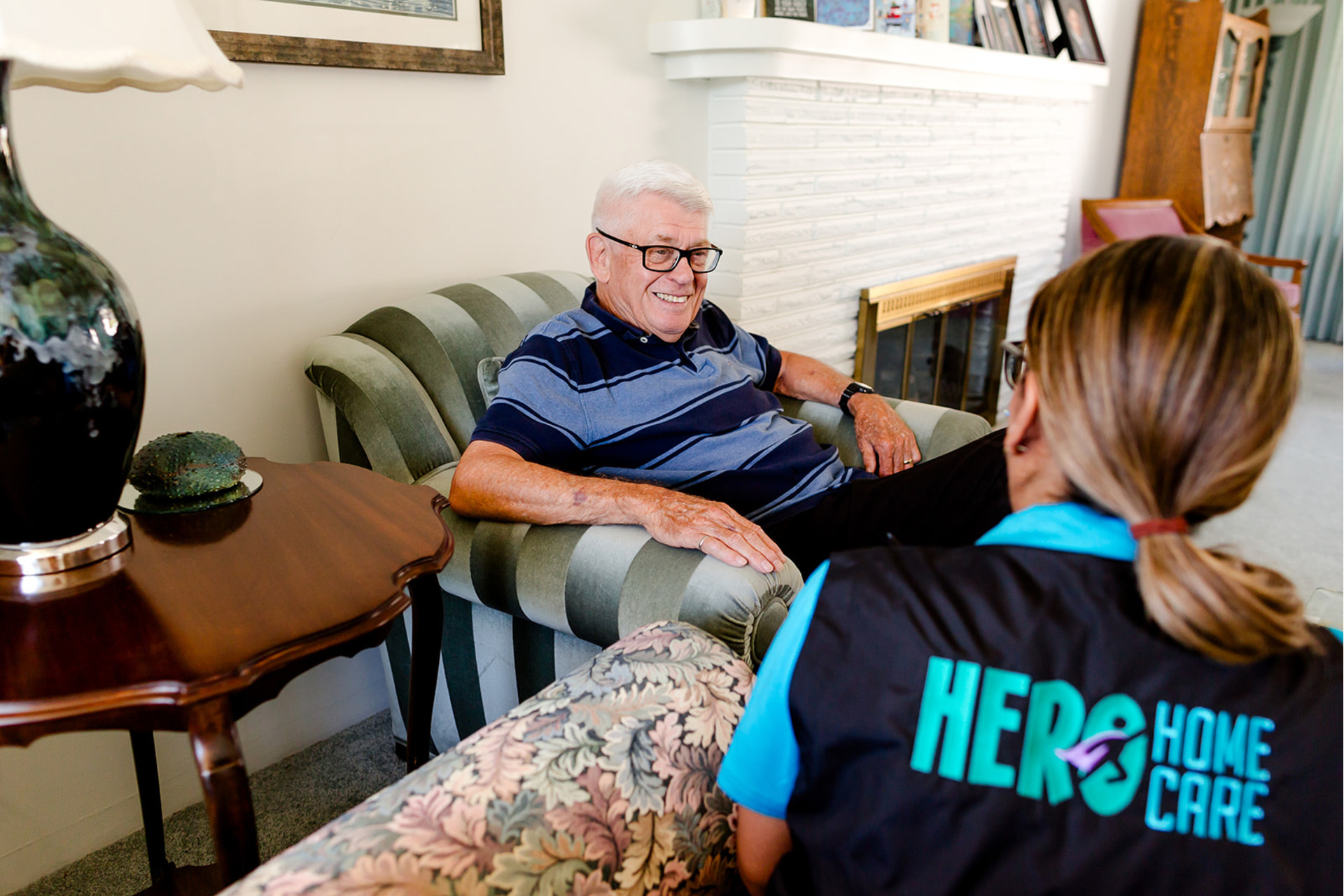We all want to age gracefully. However, some are not prepared for the normal effects of ageing, such as memory loss or other cognitive decline. These effects may come naturally or be hastened by a condition like dementia.
Do you struggle to support loved ones experiencing natural or hastened cognitive decline? Knowing how to act and support them best can be challenging. Without help and knowledge of their condition, it can take an emotional toll on you and your family.
The best place to start is to identify the cause of the memory problems. They may be a part of normal ageing or early dementia stages. Observe your loved one and make notes of anything out of the ordinary. Discuss your concerns with their doctor or trusted dementia experts such as Hero Home Care.
In this article, we’ll help you identify signs of natural ageing versus dementia symptoms. We’ll also share some tips for how you can best support your loved one.
What is considered “normal” cognitive brain ageing
Did you know our cognitive abilities peak around age 30 and begin a slow, natural decline as we age? You may observe the following declines in your older loved ones, including
- Slower thinking speed
- Shorter attention spans
- Struggles to multi-task
- Difficulty remember information
- Struggles to find the right words
When these symptoms have a slow onset, they’re likely related to natural ageing. Are you concerned about their impacts on your loved one’s health and safety? Talk to a healthcare provider for advice or trusted dementia experts such as Hero Home Care.
Identifying dementia symptoms and Alzheimer’s in older adults
If any of the previously mentioned symptoms come on more suddenly or more severely, it may be a sign of dementia like Alzheimer’s. Common signs of dementia may include struggling to :
- Remember information, directions, or tasks
- Navigate or get from place to place
- Solve problems
- Express themselves clearly
You may also notice changes in their behaviour and routines, including:
- Changes in eating habits
- Getting lost in familiar places
- Changes in their personality
- Declining or forgetting hygiene
- Messy living areas
- Struggles in planning
- Struggle to complete familiar tasks
- Increased incidents of falls
- Unexplained body shaking
Everyone experiences dementia symptoms differently. If you notice severe deviations from their usual demeanour and cognitive abilities, it may be a sign of concern.
Record any unusual behaviour and look for patterns or worsening of these symptoms.
Understanding the role of sundowners syndrome
Your loved one’s cognitive changes may be impacted by the time of day or have another external trigger. 66% of older adults with dementia symptoms suffer from what’s called sundowners syndrome. While not a disease, dementia sundowning affects your cognition around the same time every day. This is typically around sunset, hence its name: “sundowners.”
If you suspect sundowners, look for what may be triggering it, as it may not always be the time of day. It may be triggered by:
- Disrupted circadian rhythms
- Fatigue
- Dehydration
- Medication side effects
- Physical illness or pain
- Overstimulation during the day or preceding bedtime
- Mental or physical exhaustion
- Low lighting
If you suspect your loved one is experiencing sundowners, talk to their doctor.
How to support your ageing loved ones
Your first responsibility is to ensure the health and safety of your loved one. If they’re experiencing normal cognitive decline, be there to give them extra support and reminders as needed. If it helps, leave notes around their home to remind them of important routines. For example, leave a note on their bathroom mirror to check that they locked their doors before bed.
If their cognitive decline is sudden, follow the advice of their healthcare professional.
Whether their decline may be natural or caused by dementia, you don’t need to be their primary caregiver. If you need help to care for your loved one, consider bringing in an occasional, part-time, or full-time caregiver.
At Hero Home Care, we provide in-home Alzheimer’s caregiver support. Our team has unique experience working with older adults experiencing cognitive struggles. A local Nurse Manager will work with you to develop a care plan unique to your loved one. It may include:
- Maintaining a familiar and safe environment
- Memory games and activities
- Providing consistent visits and a regular routine
- Respite care for family members
- Personal care
- Cooking and meal preparation
- Homemaking
We know it’s heartbreaking to watch your loved one’s cognitive ability decline. Our caregiving team can help them maintain their dignity and continue living in the home they know and love.
Remember: You’re not alone in this journey. While you can’t control your loved one’s rate of decline, you can be proactive in seeking information and support. Get help from your loved one’s healthcare team and the support of the caring heroes at Hero Home Care.

